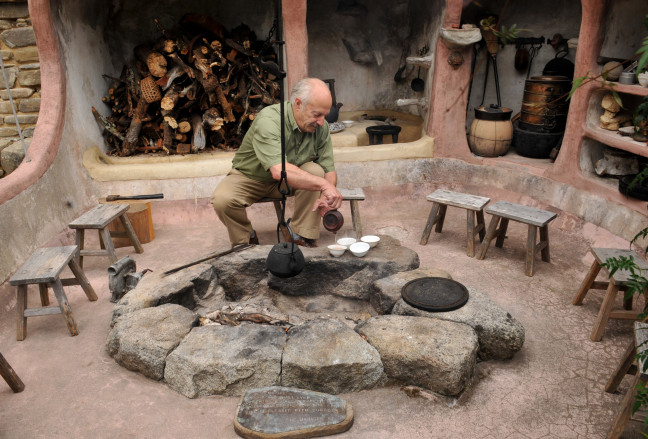OPINION Marin Voice: Commercial developers are threatening Lagunitas’ Last Resort
August 20, 2019

By MARI SEREBROV | August 19, 2019 at 10:33 am
An outgrowth of the back-to-the-earth movement of the 1960s and early ‘70s, the Last Resort in Lagunitas is a testament to one man’s ingenuity and his dream of developing a practical, low-cost ecological system that could serve as a demonstration project for his community.
Now, nearly 50 years after David Lee Hoffman began turning his two acres of hillside into an artistic environmental model of living sustainably, Marin County officials are threatening to destroy everything he’s created by reneging on old agreements and assessing penalties approaching $1 million. That includes hundreds of thousands of dollars to mitigate off-site environmental damage that has nothing to do with the Last Resort.
What could be lost, if the county doesn’t back down in court later this month, is a unique integrated bio-management system that uses vermiculture, composting and healthy gray water processes to produce a natural fertilizer that enriches the soil for growing high-grade organic food. Also at stake are more than 35 buildings that the Marin County Architectural Commission has cited for their architectural significance.
So what is the Last Resort?
“It’s an important and significant example of East-West folk art,” according to sustainable architect Sim Van der Ryn, who was appointed California State Architect by former governor Jerry Brown and is on the architecture faculty at the University of California at Berkeley.
Others consider it a quintessential living history – a prime example of the do-it-yourself, back-to-the-land, Mother Earth ethos of the 1960s put into practice.
For Hoffman, the Last Resort is his home. It embodies three principles: water is precious, soil is sacred and human waste is a resource. Following those principles, Hoffman, who has an engineering and physics background, designed all the systems at the Last Resort to be completely isolated and self-contained so there is no chance of polluting the environment.
Considered a leading global authority on pu-erh teas, Hoffman is known in the tea world for introducing and popularizing fine handcrafted artisanal teas to the West. With his extensive background in vermiculture and soil fertility, Hoffman worked with China’s prestigious National Tea Research Institute, the Chinese Academy of Agricultural Sciences and the Department of Agriculture to help them implement organic and sustainable tea-farming practices.
Hoffman has argued that the buildings, including the original house that was built in the 1920s, should be held to the historical building code. He admits that as he developed his compound, he didn’t bother with building permits. Back in the 1970s, no one in that part of the county did. “We were pretty much left alone,” Hoffman said. Even when the county started handing him red tags years later for not having a permit, there was a tacit agreement that everything was OK.
That all changed about 10 years ago when a new generation of building inspectors came into county government. The county initially agreed to settle the permit violations for $60,000 but then reneged on that offer, Hoffman said. Its latest settlement offer was $700,000 in penalties.
The costs escalated when a judge appointed a receiver to determine the property needs. With Hoffman expected to pay for the receiver’s time and all expenses, the receiver has called in multiple experts and agencies to identify violations that “could” be occurring at the Last Resort. Hoffman’s struggle to preserve his vision “got more complex and more convoluted with all these agencies,” he said.
Hoping to pass the ecological lessons he’s learned to future generations, Hoffman is working with the Lagunitas Project to preserve the Last Resort property in a Public Benefit Trust.
“I set out 46 years ago to create a living model of sustainability. I succeeded,” Hoffman said.
Meanwhile, commercial developers are circling.
The public is welcome to attend the case management conference in Marin Superiour Court at the Civic Center in San Rafael, 9 a.m. on Friday. Go to TheLagunitasProject.org for more information.
Mari Serebrov, who lives in Arkansas, is an award-winning journalist and author. She originally wrote this article for TheLagunitasProject.org.